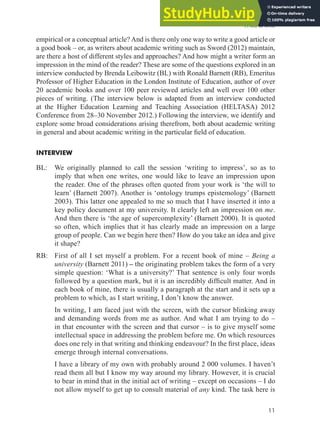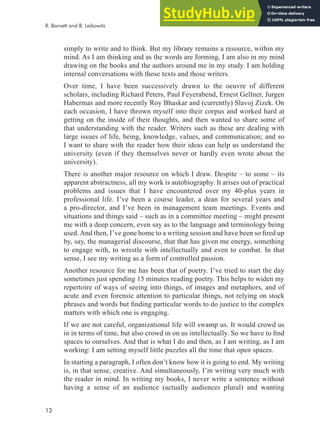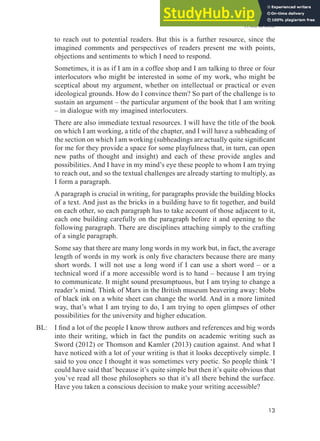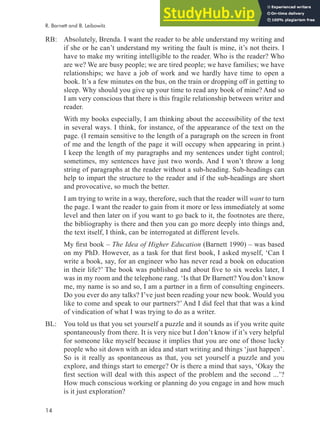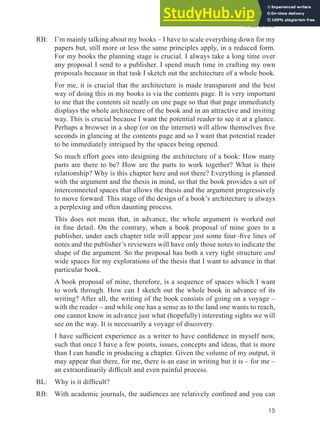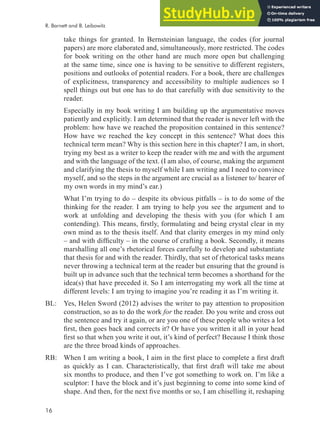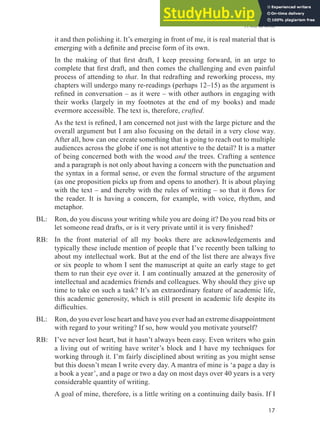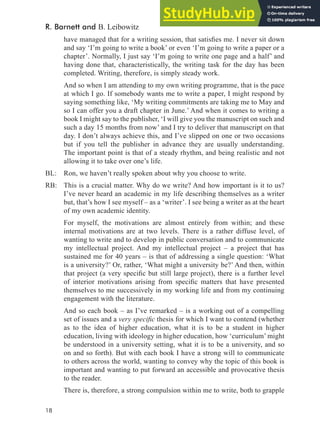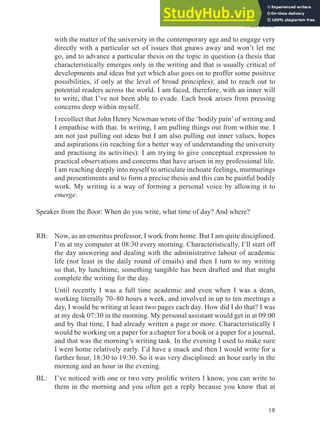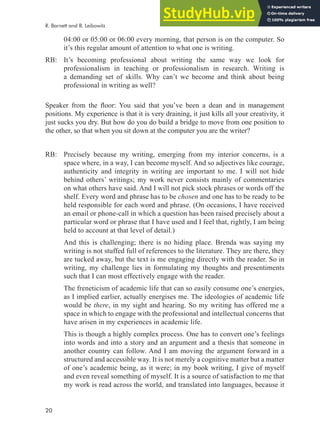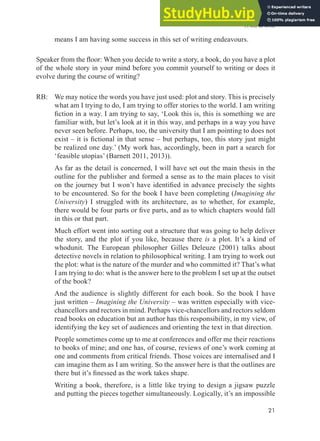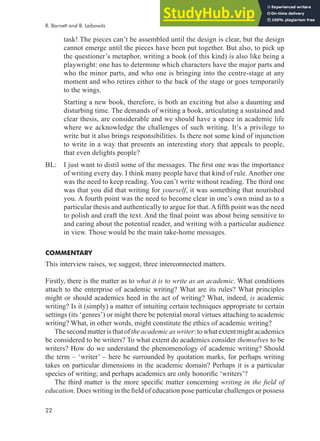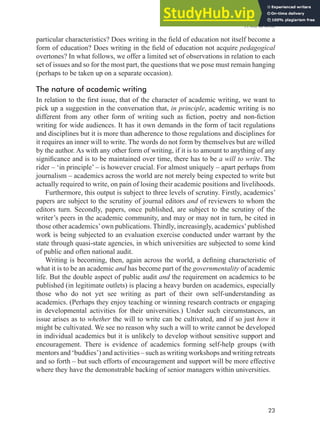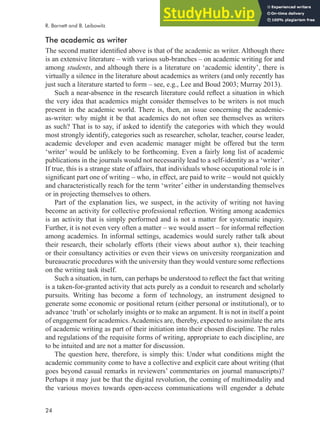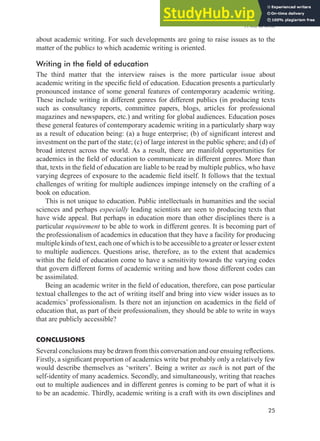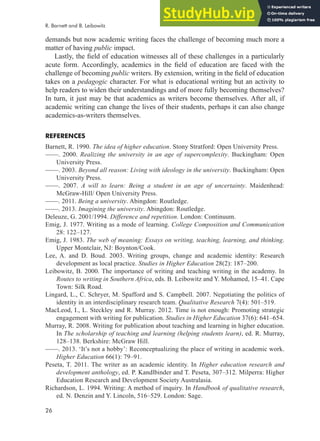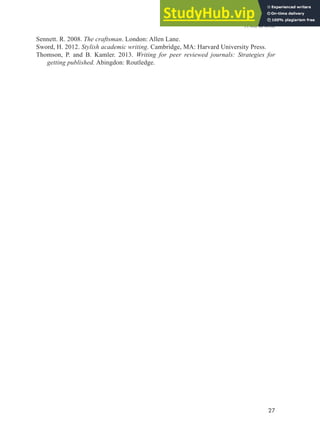The document summarizes an interview with Ronald Barnett about his process for academic writing. Barnett discusses how he begins with a problem or question to address, then draws on internal conversations with ideas from his library and conversations with authors. He also draws inspiration from his own experiences in academia. Barnett sees writing as a creative and passionate process, with the reader always in mind. He crafts his writing through careful attention to individual paragraphs and choice of words to communicate effectively and potentially change the reader's perspective.
![10
© Unisa Press ISSN 1011-3487 SAJHE 28(1)2014 pp 10–27
A will to write
R. Barnett
Institute of Education
University of London
London, United Kingdom
e-mail: r.barnett@ioe.ac.uk
B. Leibowitz
Centre for Teaching and Learning and Department Curriculum Studies
Stellenbosch University
Stellenbosch, South Africa
e-mail: bleibowitz@uj.ac.za
Abstract
This article is based on an interview conducted by Brenda Leibowitz with Ronald Barnett,
noted author of over 20 academic books and 100 articles, at the Higher Education
Teaching and Learning Association of Southern Africa (HELTASA) 2012 Conference.
The interview deals with several topics including: the challenge of formulating and
articulating a definite thesis; the importance of polishing and crafting drafts; keeping
multiple audiences in mind; the different demands of writing articles and books; the
value of poetry and fiction; how to keep going as a writer; issues of identity; and
maintaining a will to write. The article continues with a set of joint critical reflections
on the nature of academic writing and concludes with the suggestion that writing can
enhance academics’ understanding of themselves.
Keywords: academic writing, writing to learn, academic identity, craft, audience,
creativity, voice
INTRODUCTION
The writing to learn movement (Emig 1977, 1983) has shaped worldwide the thinking
about the role of writing in the curriculum and its ability to enhance student success.
Is this interest in the value of writing for students’ learning not equally pertinent for
academics? Echoing Richardson (1994), who advocates the value of writing as a
mode of enquiry for researchers, Lingard, Schryer, Spafford and Campbell (2007:
516) write that ‘attention to manuscript production [is] a complex act of shaping
knowledge production’. Here, surely, is a productive link between the writing of
academics and the writing of their students, which is enriched by the academics’
interrogation of what they do when they write (Leibowitz 2000).
So what do academics gain by writing? What work is involved in crafting either an](https://image.slidesharecdn.com/awilltowrite-230804180135-e9ce3174/75/A-Will-To-Write-1-2048.jpg)
